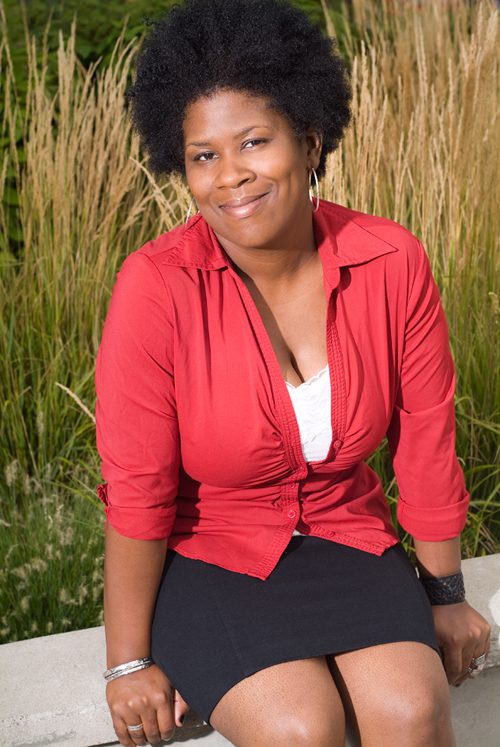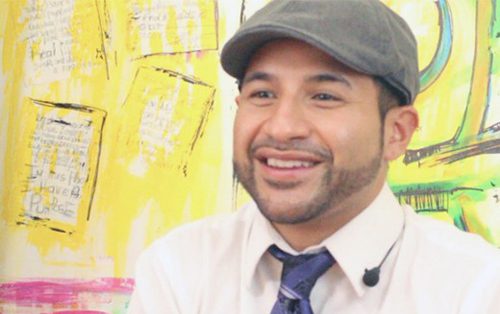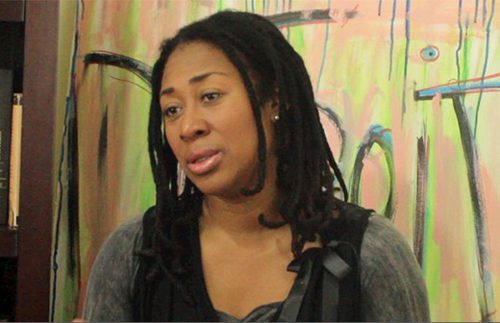
 Somewhere between the billionaire investors and the crime reports you see on television, there is Middle Detroit.
Somewhere between the billionaire investors and the crime reports you see on television, there is Middle Detroit.
That’s how Donna Jackson sees it – in simple terms, in black-and-white facts. Yes, you have the people who are new to the city, excited about its future and their prospects here. Sure, there are the business owners who have made their millions and their marks here. But what about the “regular people?” What about the everyday Joes who keep their houses straight, go to work every day and take care of their families at night?
They needed a voice, Jackson decided. So she created Middle Detroit, an online project that gives Detroit’s everyday citizens a place to talk about their hopes, dreams, disappointments and suggestions for the city. Besides the interviews, Jackson also created quarterly meetings where those she interviewed, their friends and others can come together to talk about Detroit’s issues, discover each other and find ways to put resources behind their efforts.

“I want to find the people in Detroit who want to be part of all this great energy that is happening. They needed a way to get to the table to be part of the discussion or get movement around the things that they do,” Jackson told me from Houston, where she works part of the year.
Being situated out of state for work was another reason why Jackson felt Middle Detroit needed to happen. She hears what people say about the city. She feels the hurt when people talk about Detroit’s crime rate, its homicides, its ugly side. And, sadly, that is still a huge part of what people think about the city, Michigan and this region.
“I know there are great people coming in with money, resources and creativity. You also have the poor and those struggling. But there are a lot of people in the middle that want their stories told, too. They want to be part of Detroit,” Jackson said.
“There are a group of people in the middle of these narratives that don’t get heard,” Jackson added. “These aren’t people scrounging for notoriety. They just want people to know that they exist in this city. There are people outside of what you see in The New York Times and other media. And they’re doing wonderful things that keep Detroit going. They’ve kept Detroit going when it was real, real down.”
You hear that backlash when such national newspapers come into town. They’ll write stories about a district, perhaps Corktown, and interview the same subjects every time. Or they’ll interview only one race. I even saw a reporter friend make a joke about it on Facebook the other day, asking if the “BBQ Jesus” ever lets another person have a say in the media about the city. It took me a minute to figure out who he was referring to, but I get it. In fact, BBQ Jesus gets it. But how do you change it?
Projects like Middle Detroit are genius for that reason. You know how you solve the problem of finding the right people to talk to for stories? You get out there. You meet people. You call a friend who has a cousin who has a buddy who once did exactly what you need for a story. You look for people like Jackson, who can act as a conduit between you, real people and real life. Granted, it’s better to have a life, but if you have to rely on others, Jackson has a unique Rolodex that has the Middle right in it.
“The reason I can find these people is that I am one of them,” Jackson said. “They love this city. This is their home. They are ingrained in Detroit.”
 The interviews are wonderful to watch. They’re fascinating for their insights – sometimes, they’re hard to listen to and accept. But they inform and inspire. There’s Linda, who says it is up to all of us – residents and beyond – to correct the misbeliefs about Detroit. It is up to us to change the image of Detroit and the way to change the image is to change reality.
The interviews are wonderful to watch. They’re fascinating for their insights – sometimes, they’re hard to listen to and accept. But they inform and inspire. There’s Linda, who says it is up to all of us – residents and beyond – to correct the misbeliefs about Detroit. It is up to us to change the image of Detroit and the way to change the image is to change reality.
There’s LaToya Garcia Henry, who describes Detroiters as determined. Proud. She admonishes Detroiters to get out and find out about what’s going on in the city for themselves. And that people need to get away from TV (idiot box) to learn more. Regina Ann Campbell talked about the importance of family, having spaces for kids to play, explore. And she wanted to let people know that Detroiters aren’t dumb; there are brilliant individuals who live there who may not have college degrees. She notes: “Respect people where they are because there’s a lot of great talent here.”
A little more about Jackson: She is a designer and artist who wants to prove that everyone is creative and that creativity is the path to stronger communities. For the past 12 years, Jackson has dedicated her skill as a designer and organizer to developing marketing and promotional materials for urban libraries. She has been a graphic/web designer for two large urban library systems and also a brand manager for Houston Public Library. She currently consults libraries in brand identity development and is a regular presenter at library association conferences.
She is founder of DMJStudio, a creative studio devoted to developing art projects that strengthen and beautify communities. DMJStudio is also the home to her art series “Colorful Women.” Currently, she is projects as a part of the Detroit100 Series, an art/community collaborative project that give Detroiters 100 opportunities to change their city through art.
Jackson has a core belief that if people can get in touch with their creative selves they could understand themselves better as human beings and spiritual beings, which in turn, will change how people act and react in society.
 Jackson’s hope is to not only have her website, Twitter and other social-media sites, but to create a living archive somewhere in Detroit. Her first choice is the Detroit Public Library, where these stories would tell the tale of the city as it is emerging from its darkest days to what seems like its brightest future. These stories could live on, helping change the way people see Detroit.
Jackson’s hope is to not only have her website, Twitter and other social-media sites, but to create a living archive somewhere in Detroit. Her first choice is the Detroit Public Library, where these stories would tell the tale of the city as it is emerging from its darkest days to what seems like its brightest future. These stories could live on, helping change the way people see Detroit.
She is one of those people who left Detroit at one point, but she came home when she saw the positive action taking place. Her four years in Houston gave her perspective.
“I came home because I wanted to be part of the energy here. There was no way to stay away with all of this great stuff happening here. I started working, tutoring, volunteering, holding art classes with kids. I started seeing all of these people doing amazing stuff – and no one was highlighting them. No one’s talking to them. They needed support. What they were doing could grow if they could only get more support.
“People in this city are working so hard. Detroit could go anywhere if we got some resources behind this middle population. We can move further, faster,” Jackson added. “I understand the middle. I’m the middle child with my twin brother in our family. I’ve worked in middle management. That’s who keeps things together – the middle.”
Jackson’s next quarterly discussion will be Saturday, Aug. 30. The location is still to be determined. But she will have four new Middle stories to share both there and online. The goal is to bring people together for coffee, friendship and discussion, she said.



